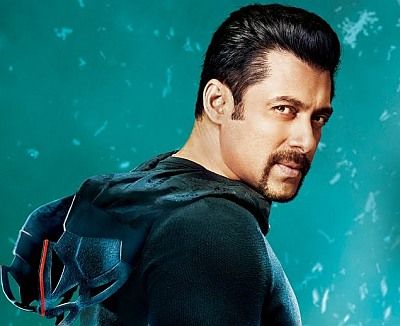 Bollywood superstar Salman Khan has told the Supreme Court that he has always been treated as an ordinary citizen by courts and never given any special privilege, as he sought to justify a Rajasthan High Court order suspending his conviction in the blackbuck hunting case.
Bollywood superstar Salman Khan has told the Supreme Court that he has always been treated as an ordinary citizen by courts and never given any special privilege, as he sought to justify a Rajasthan High Court order suspending his conviction in the blackbuck hunting case.
The "Dabangg" star also submitted that he has been one of the highest tax payers and the high court stayed his conviction to enable him to go abroad for his professional engagement which brings in foreign exchange in the country.
The 48-year-old actor opposed the stand taken by Rajasthan government which had submitted that the high court had granted special privileges to him by staying his conviction in which he was sentenced by a trial court to undergo five-year jail term.
On July 9, the Apex court issued a notice to Khan on a plea by Rajasthan government challenging the high court decision.
The state government had approached the apex court against the Rajasthan High Court order of November 12 last year, staying his 2006 conviction in the case and paving way for him to apply for a British visa.
"It is denied that the High Court failed to apply the principle that everyone is equal before law and granted me special privilege because I am a celebrity. The courts have at all times treated me as any other ordinary citizen and I have always complied with the conditions imposed upon me," the actor said in an affidavit to the Apex court.
Seeking dismissal of the state government's plea, the star submitted that he is also a philanthropist and promotes Indian films and his professional engagement generates employment for the industry.
"The nature of my professional engagements is such that I frequently travel to various countries, where I am required to discharge my professional duties towards films, promotion of films, brand endorsements, promoting charitable causes," he said.
Khan said that the high court has appreciated the fact that the trial court's conviction order had started hampering his professional engagements and would cause irreparable damage to him as well as others who will engage his professional service as an actor.
Refuting allegations of Rajasthan government that one prime witness was threatened to depose in his favour, Khan said it was a mere charge which was never proved.
Under British immigration rules, any person convicted for more than four years is not eligible for a visa. Since the actor was convicted for five years, he was denied visa by the British High Commission.
The passports of Indian convicts are stamped with the word "convict".
Khan was convicted and sentenced to one-year and five-year prison terms in separate cases of poaching of two Chinkaras at Bhawad and one blackbuck at Ghoda Farm (Mathania) on the intervening night of September 26-27, 1998 and September 28-29, 1998 respectively. Blackbuck is a protected animal and its hunting is a punishable offence.
The actor had approached the high court in 2007 seeking a stay on his conviction by a trial court so that he could file a fresh application for a British visa.
Besides Khan, actors Saif Ali Khan, Sonali Bendre, Tabu and Neelam were accused of poaching near Jodhpur during the shooting of the film Hum Saath Saath Hain.











 © 2025
© 2025